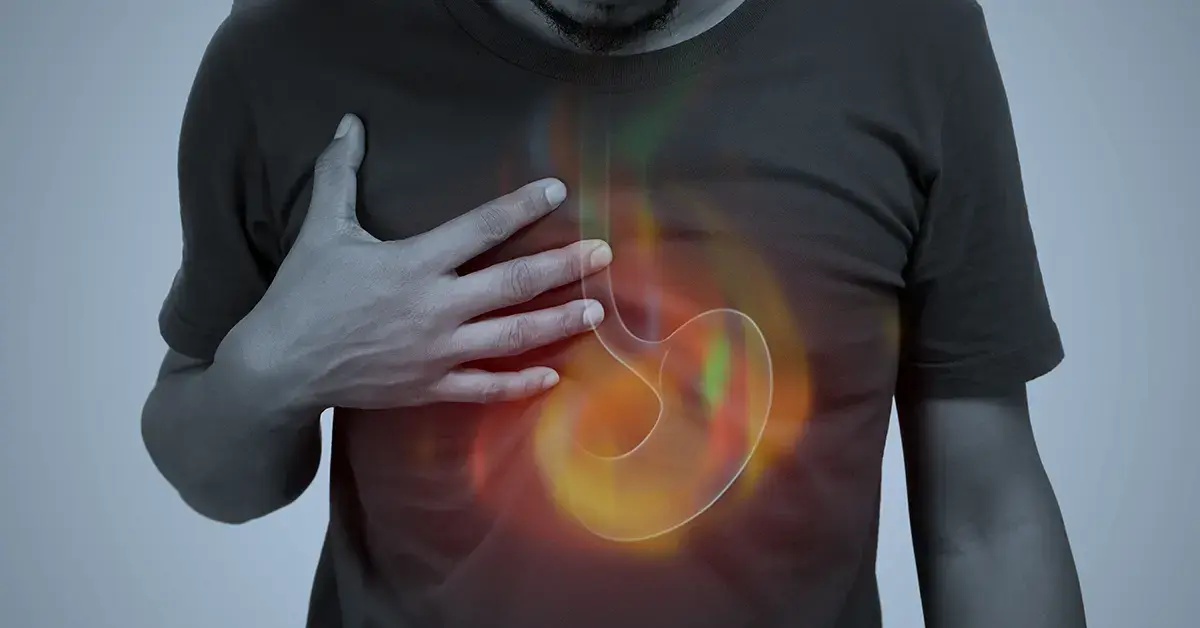Acid reflux is a prevalent condition affecting millions worldwide. It occurs when stomach acid flows back into the oesophagus, causing discomfort and sometimes pain. This backward flow of acid, also known as gastroesophageal reflux, can lead to symptoms like heartburn, a burning sensation in the chest, or a sour taste in the mouth. In simple terms, acid reflux happens when stomach acid goes where it shouldn’t be.
What Causes Acid Reflux?
Acid reflux is primarily caused by a weakened lower esophageal sphincter (LES), a muscle ring acting as a valve between the oesophagus and stomach. When the LES doesn’t close properly, stomach acid can escape into the oesophagus. Certain foods, lifestyle habits, and health conditions can increase the likelihood of this happening. Some common triggers of acid reflux include:
● Spicy foods
● Fatty or fried foods
● Caffeine
● Alcohol
● Smoking
● Obesity
● Pregnancy
● Stress
Symptoms of Acid Reflux
The most noticeable symptom of acid reflux is heartburn, a burning pain in the chest that can worsen after eating or when lying down. Other symptoms may include:
● A sour or bitter sense in your tongue.
● Difficulty swallowing
● Sensation like there’s a lump in the throat
● Chronic cough
● Hoarseness or sore throat
● Regurgitation of food or sour liquid
Frequent acid reflux can progress to gastroesophageal reflux disease (GERD), a serious condition requiring medical attention due to the potential long-term damage to the oesophagus caused by acid.
How to Manage Acid Reflux?
Most acid reflux situations may be treated with lifestyle modifications and by prescribed
medications. Some helpful tips include:
● Dietary Adjustments: Avoid foods that trigger acid reflux, such as spicy, fatty, or acidic foods. Frequent but smaller meals might also be helpful.
● Weight Management: Reducing extra weight can ease the strain on the stomach and reduce the possibility of reflux.
● Elevate Your Head While Sleeping: Keeping your head raised at night can prevent acid from flowing back into the oesophagus.
● Avoid Eating Late: Refrain from eating large meals or snacks right before bed.
● Quit Smoking: Smoking lowers the LES’s strength, increasing the likelihood of reflux.
Medications like antacids, H2 blockers, or proton pump inhibitors (PPIs) can reduce stomach acid and provide relief. However, long-term use of PPIs has raised concerns in recent studies. Researchers have found that using PPIs over extended periods may increase the risk of kidney disease, osteoporosis, and vitamin deficiencies. Always consult with a doctor before taking medications long-term.
Latest Studies on Acid Reflux
Recent research has focused on the impact of diet and gut health on acid reflux. Studies suggest that following a plant-based or Mediterranean diet rich in fruits, vegetables, and whole grains may help reduce acid reflux symptoms. Probiotics, which promote a healthy gut, have also shown potential in improving digestive health and reducing reflux episodes.
Additionally, new treatments such as magnetic sphincter augmentation (MSA), a surgical procedure, have been developed for those with severe GERD. This procedure involves placing a ring of magnetic beads around the LES to strengthen it, reducing reflux.
Acid reflux is a common but manageable condition. By understanding your triggers and making simple lifestyle changes, you can reduce symptoms and improve your quality of life. If symptoms persist, consult a healthcare professional to explore further treatment options.
